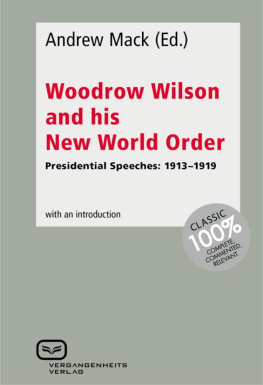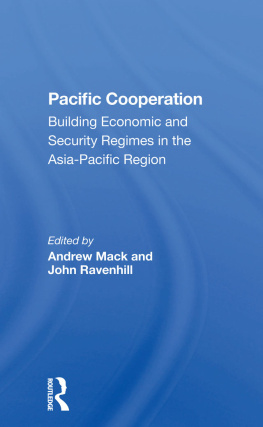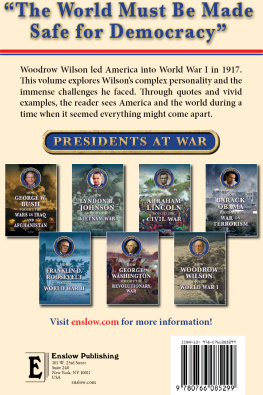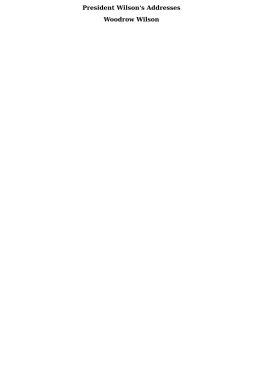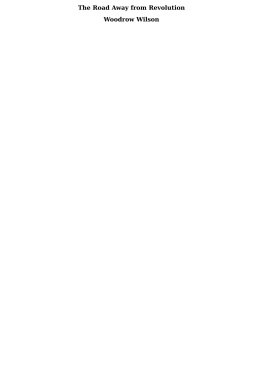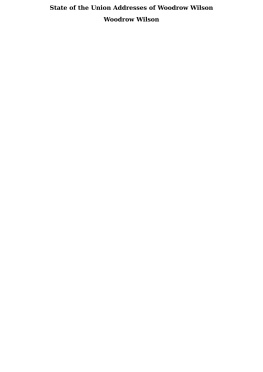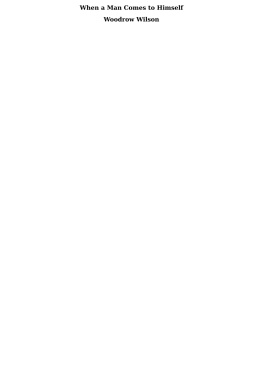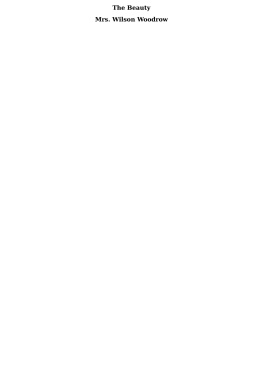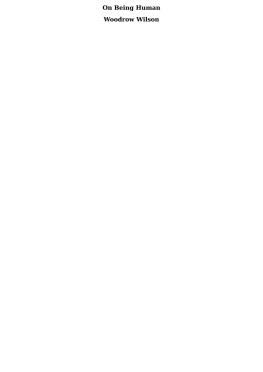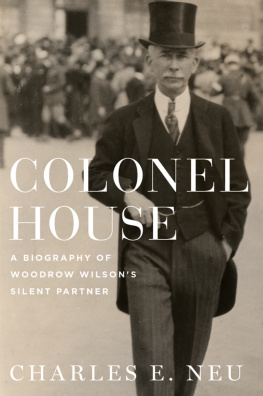Andrew Mack (Ed.)
Woodrow Wilson and His New World Order
Presidential Speeches: 1913-1919
with an introduction by Andrew Mack
Legal Notice
ISBN 978-3-940621-90-0 (epub)
ISBN 978-3-940621-91-7 (pdf)
The speeches collected for this work were digitized and released by the Federal Archives of the United States of America.
Editor / Introduction by Andrew Mack
The trademark 100% - complete, commented, relevant stands for a high quality product in digitized classic literature; through experience with other seemingly incomplete and inaccurate digitization projects available online, we were impelled to begin our own digitization project where the texts correspond exactly with the originals.
Vergangenheitsverlag, 2011 www.vergangenheitsverlag.de
eBook-Herstellung und Auslieferung:
readbox publishing, Dortmund
www.readbox.net
Table Of Contents:

Introduction
In the decades leading up to the First World War (1914-1918), the weight upon old Europe held together like a house of cards began to give. Mankind seemed invincible. Art flourished. Technological advances opened the eyes of the world to the future and the possibilities of human ingenuity. Scientific discoveries laid the groundwork for modern medicine. Western society exported itself with an ever-increasing intensity to the uncivilized world based upon the vain belief that Europe and its culture held the keys to the future. With one shot the illusion was shattered and Europe and the entire world plunged into a catastrophe so tremendous that the leaders of the time could not comprehend the proportion and scale of destruction that this new modern-type of warfare would unleash. After the assassination of the heir to the throne of the Austria-Hungarian Empire, Archduke Franz Ferdinand, by a group of the Serbian revolutionists, Germany, an ally to Austria, declared war against France and Russia, allies the latter of which supported Serbia. As the German army marched through Belgium on its way to France in an attempt to quickly defeat the weaker of the two main enemies, Great Britain entered the war against Germany when negotiations regarding Belgian sovereignty failed. In the eyes of Europe, this necessary war of great powers would bring an everlasting peace: a war to end all wars.
The United States entered the war with the Allies on April 6, 1917 in a final attempt to defeat German militarism, believed to be the greatest obstacle in preventing world peace. The sinking of the Lusitania in 1915, a United States passenger vessel, by German U-Boots killing almost 2,000 passengers is often seen as the catalyst for the U.S. entry into the war. By 1918 the world had become weary of what seemed to be a never-ending conflict and the contenders negotiated an armistice ending the hostilities. With nearly 9 million dead, it was obvious that something needed to be done to prevent war forever.
As a result of the Great War and the utter destruction upon the European continent, a new power arose and took the lead in attempting to bring peace to the nations - the United States. Spearheaded by then President Woodrow Wilson (1856-1924) in a series of speeches he outlined his ideas and plans for a future new-world order. The Nobel Foundation in Stockholm awarded Woodrow Wilson in 1920 the Nobel Peace Prize for his ideas and work in pioneering the League of Nations. Anders Johnsen Buen, president of the Norwegian Parliament, stated in his speech at the award ceremony, as the name of President Wilson comes to the fore on this occasion as the recipient of the Peace Prize, I know that the award is accompanied by the thanks of the people of Norway, because in his celebrated Fourteen Points the President of the United States has succeeded in bringing a design for a fundamental law of humanity into present-day international politics. The basic concept of justice on which it is founded will never die, but will steadily grow in strength, keeping the name of President Wilson fresh in the minds of future generations.1 Wilsons Fourteen Points relayed his view on a post-war Europe and how nations in this new world would interact: an example being that all treaties should be open covenants of peace, openly arrived at, after which there shall be no private international understandings of any kind, but diplomacy shall proceed always frankly and in the public view. In essence, Wilson propagated a new world order that would be ruled by a league charged with protecting the political independence and territorial integrity [of] great and small states alike. Signed into existence in 1919 by the Allies and Central Powers, the founding charter of the League of Nations is commonly known as the Treaty of Versailles. The controversial document contains very little of Wilsons ideals, in fact, Wilson had to compete with the other Allies, England and France in particular, in order for any of his Fourteen Points to be included in the treaty, simply because his idealism fell short of what the other Allies believed to be fair justice. At Paris the battle was now joined in deadly earnest. Clemenceau, the French realist, had little use for Wilson, the American idealist. God gave us the Ten Commandments and we broke them, he reportedly sneered. Wilson gave us the Fourteen Points we shall see. Clemenceaus most disruptive demand was for the German Rhineland; but Wilson, the champion of self-determination, would never consent to handing several million Germans over to the tender mercies of the French. After a furious struggle, during which Wilson was stricken with influenza, Clemenceau was finally persuaded to yield the Rhineland and other demands in return for a security treaty. Under it, Britain and America agreed to come to the aid of France in the event of another unprovoked aggression. The United States Senate shortsightedly pigeonholed the pact, and France was left with neither the Rhineland nor security.2 The Senates refusal to ratify the Treaty of Versailles meant that the U.S. never became part of the League of Nations. The European Allies blunt disregard for the principles of Wilsons new world order can perhaps explain their complete lack of loyalty to the organization. Continually over the next decade the Allies actions undermined and compromised the entire League, rendering it ineffective and weak. The League proved powerless in preventing the events of aggression begun by Germany after 1933, in spite of the internationally ratified Kellogg-Brian Pact of 1928, which made war illegal.
Wilsons vision of a new world order seems almost ironic today with the scenes of war and terror constantly being shown by the mass media, yet his ideals continue to form the foundation for modern society. Words on a page making war illegal can hardly control the world from waging war, yet the ideal that war should be avoided through diplomacy continues to shape policy and influence decisions today. Perhaps no presidency of the 20th century would experience greater ups and downs in reputation than Wilsons. The cloud under which he departed darkened further in the 1930s, when even many of his erstwhile followers came both to blame him for entering World War I and to dismiss his advocacy of the League of Nations as foolish. Yet, during World War II, the president would come to be honored as a prophet, and many of the arguments for the United Nations would be couched in terms of making things up to him. Still later, realists would condemn Wilson afresh as a woolly headed idealist with messianic delusions, but more recently he has begun to be appreciated as an apostle of restraint, humility and humane aspiration.3 Wilson remains a truly remarkable figure in modern history and his accomplishments in the fundamentals of justice and world order became the foundation for the United Nations. Yet, the visionary ideas failed to prevent the second war and today terrible acts of aggression continue to be committed. Are these ideas simply too good to be true or can a world without war really exist? Wilson believed in his dream and if the Treaty of Versailles had not been tainted by the selfish desires of European politics, his new world order may have prevented a second war.



